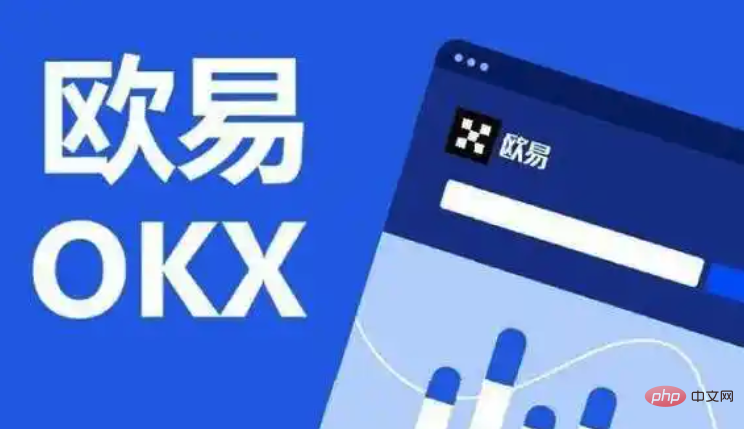What is DeFi? What is the difference between decentralized finance DeFi and CeFi
There are significant differences between decentralized finance (DeFi) and centralized finance (CeFi): DeFi is managed by a distributed network with no central authority, while CeFi is built on centralized infrastructure and controlled by specific entities . DeFi emphasizes non-custodial asset storage, while CeFi custodial user assets. DeFi is generally more transparent and widely accessible, but transactions can be slower and have higher fees, while CeFi offers faster speeds and lower fees at the expense of decentralization and accessibility.

Key points:
Understand the relationship between decentralized finance (DeFi) and centralized finance (CeFi) Key difference.
The difference between DeFi and CeFi:
1. Decentralization and centralization:
- DeFi: Managed by a distributed network (often based on blockchain) without the need for a central authority.
- CeFi: Built on centralized infrastructure and controlled by specific entities (such as banks or cryptocurrency exchanges).
2. Managed and unmanaged:
- DeFi: Users retain full control of their assets, typically stored in a personal wallet.
- CeFi: Assets are stored on exchanges or custodians, and users grant control to third parties.
3. Accessibility and Transparency:
- DeFi: Transactions and activities open to anyone through an open and decentralized platform Recorded on the public blockchain.
- CeFi: Account creation requirements may be set, and transaction and activity records are only visible to centralized entities and regulators.
4. Fees and Speed:
- DeFi: Blockchain-based transactions are generally slower and more expensive than CeFi transactions.
- CeFi: Typically offers faster transaction speeds and lower fees, but there may be middleman fees.
5. Security and supervision:
- DeFi: Smart contracts and blockchain technology provide inherent security, but are also susceptible to hacking and other vulnerabilities.
- CeFi: Typically follows regulatory norms and generally offers a higher level of security than DeFi, but its centralized nature also carries risks.

OKX:
OKX is one of the world’s leading cryptocurrency exchanges, Leading the way in DeFi. OKX offers a variety of DeFi products and services, including:
- DeFi Exchange: A platform for trading DeFi tokens.
- Lending Services: Allows users to lend or borrow cryptocurrencies.
- Mining Pool: A platform to participate in blockchain mining and obtain rewards.
- DeFi Tools: Includes tools like price tracker, yield calculator, and governance voting.
FAQ:
What is decentralized finance (DeFi)?
DeFi is a financial system built on a distributed network that gives individuals control over their funds without the need for intermediaries.
What is the difference between DeFi and CeFi?
DeFi is decentralized and has no central authority, while CeFi is centralized and controlled by specific entities. DeFi provides non-custodial asset storage, while CeFi custodial user assets. DeFi is generally more transparent and widely available, but transactions can be slower and more expensive, while CeFi offers faster speeds and lower fees at the expense of decentralization and accessibility.
What are the advantages of DeFi?
- Decentralized, reducing dependence on middlemen.
- Give individuals control over their funds.
- Greater transparency, increasing trust and accountability.
What are the risks of DeFi?
- Potential risks of hacking attacks and vulnerabilities.
- Transactions can be slow and expensive.
- Lack of supervision and protection measures.
The above is the detailed content of What is DeFi? What is the difference between decentralized finance DeFi and CeFi. For more information, please follow other related articles on the PHP Chinese website!

Hot AI Tools

Undresser.AI Undress
AI-powered app for creating realistic nude photos

AI Clothes Remover
Online AI tool for removing clothes from photos.

Undress AI Tool
Undress images for free

Clothoff.io
AI clothes remover

Video Face Swap
Swap faces in any video effortlessly with our completely free AI face swap tool!

Hot Article

Hot Tools

Notepad++7.3.1
Easy-to-use and free code editor

SublimeText3 Chinese version
Chinese version, very easy to use

Zend Studio 13.0.1
Powerful PHP integrated development environment

Dreamweaver CS6
Visual web development tools

SublimeText3 Mac version
God-level code editing software (SublimeText3)

Hot Topics
 1664
1664
 14
14
 1421
1421
 52
52
 1315
1315
 25
25
 1266
1266
 29
29
 1239
1239
 24
24
 Top 10 cryptocurrency exchange apps The latest rankings of the top 10 cryptocurrency exchange apps
May 08, 2025 pm 05:57 PM
Top 10 cryptocurrency exchange apps The latest rankings of the top 10 cryptocurrency exchange apps
May 08, 2025 pm 05:57 PM
The top ten cryptocurrency exchange apps are: 1. Binance, 2. OKX, 3. Huobi, 4. Coinbase, 5. Kraken, 6. Bybit, 7. KuCoin, 8. Gemini, 9. Bitstamp, 10. Crypto.com. Each platform has its own unique advantages and features, and users can conduct cryptocurrency transactions by downloading apps, registering and completing verification, depositing, selecting transaction pairs and confirming transactions.
 Which exchanges support meme currency trading
May 08, 2025 pm 06:00 PM
Which exchanges support meme currency trading
May 08, 2025 pm 06:00 PM
Exchanges such as Binance, Coinbase, KuCoin, OKEx and Uniswap support a variety of meme currency transactions, such as DOGE, SHIB, FLOKI and BABYDOGE. Users can choose the appropriate platform according to their needs.
 Ranking of the top ten digital currency quantitative trading apps, the latest list of digital currency exchanges
May 08, 2025 pm 06:03 PM
Ranking of the top ten digital currency quantitative trading apps, the latest list of digital currency exchanges
May 08, 2025 pm 06:03 PM
Ranking of the top ten digital currency quantitative trading apps: 1. Binance, 2. OKX, 3. Huobi, 4. Coinbase, 5. Kraken, 6. Bitfinex, 7. Bittrex, 8. Poloniex, 9. Gemini, 10. KuCoin, these platforms provide high security and good user experience, and the steps to use include downloading and installing, registering an account, enabling two-step verification, and depositing and trading.
 TOP10 futures trading platforms: Perpetual contracts and options trading
May 08, 2025 pm 07:12 PM
TOP10 futures trading platforms: Perpetual contracts and options trading
May 08, 2025 pm 07:12 PM
In the cryptocurrency market, futures trading platforms play an important role, especially in perpetual contracts and options trading. Here are the top ten highly respected futures trading platforms in the market, and provide detailed introduction to their characteristics and advantages in perpetual contract and option trading.
 Strategy for making money with zero foundation: 5 types of altcoins that must be stocked in 2025, make sure to make 50 times more profitable!
May 08, 2025 pm 08:30 PM
Strategy for making money with zero foundation: 5 types of altcoins that must be stocked in 2025, make sure to make 50 times more profitable!
May 08, 2025 pm 08:30 PM
In cryptocurrency markets, altcoins are often seen by investors as potentially high-return assets. Although there are many altcoins on the market, not all altcoins can bring the expected benefits. This article will provide a detailed guide for investors with zero foundation, introducing the 5 altcoins worth hoarding in 2025, and explaining how to achieve the goal of making a 50x steady profit through these investments.
 How to register in the ok exchange in China? ok trading platform registration and use guide for beginners in mainland China
May 08, 2025 pm 10:51 PM
How to register in the ok exchange in China? ok trading platform registration and use guide for beginners in mainland China
May 08, 2025 pm 10:51 PM
In the cryptocurrency market, choosing a reliable trading platform is crucial. As a world-renowned digital asset exchange, the OK trading platform has attracted a large number of novice users in mainland China. This guide will introduce in detail how to register and use it on the OK trading platform to help novice users get started quickly.
 The TOP5 of the safest exchanges in 2025: Black U's guide to avoid pits, the rule of 100% of funds to save lives
May 08, 2025 pm 08:27 PM
The TOP5 of the safest exchanges in 2025: Black U's guide to avoid pits, the rule of 100% of funds to save lives
May 08, 2025 pm 08:27 PM
In the field of cryptocurrency trading, the security of exchanges has always been the focus of users. In 2025, after years of development and evolution, some exchanges stand out with their outstanding security measures and user experience. This article will introduce the five most secure exchanges in 2025 and provide practical guides on how to avoid Black U (hacker attacks users) to ensure your funds are 100% secure.
 Top 10 cryptocurrency app exchanges 2025 reliable currency trading platform app inventory points
May 08, 2025 pm 10:21 PM
Top 10 cryptocurrency app exchanges 2025 reliable currency trading platform app inventory points
May 08, 2025 pm 10:21 PM
The top ten cryptocurrency exchange apps are: 1. Binance, 2. OKX, 3. Huobi, 4. Coinbase, 5. Kraken, 6. Bybit, 7. KuCoin, 8. Gemini, 9. Bitstamp, 10. Crypto.com. Each platform has its own unique advantages and features, and users can conduct cryptocurrency transactions by downloading apps, registering and completing verification, depositing, selecting transaction pairs and confirming transactions.



